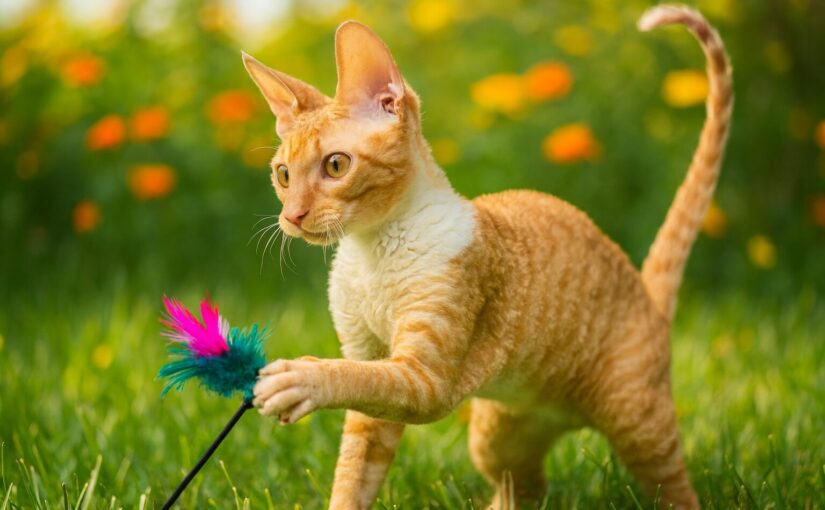If you’ve ever met a Cornish Rex, you know they’re not your average cat. With their curly coats, oversized ears, and playful, almost puppy-like personalities, these cats are unforgettable. But looks are just the beginning—Cornish Rex cats are affectionate, people-loving companions who bring joy and energy into any home.
Let’s take a closer look at where the Cornish Rex came from, how long they usually live, the health quirks you’ll want to know about, which U.S. cat registries recognize them, and what kind of families or living situations are the best match.
Where Did the Cornish Rex Come From?
The Cornish Rex’s story starts in Cornwall, England, in 1950. A little kitten named Kallibunker was born with a soft, wavy coat that looked nothing like his siblings. That curly fur was the result of a natural genetic mutation—and breeders knew they’d stumbled onto something special.
With some careful breeding (using Burmese, Siamese, and British Shorthair cats along the way), the Cornish Rex became an official breed. The “Rex” part of the name actually comes from curly-coated rabbits that share the same genetic quirk.
How Long Do Cornish Rex Cats Live?
Most Cornish Rex cats live around 12 to 15 years, though many happily make it into their late teens. What makes them extra special is that they tend to keep their kitten-like playfulness for much of their lives. Even at 10 years old, you might find your Cornish Rex zooming through the house like a mischievous kitten.
Health Things to Keep in Mind
Cornish Rex cats are generally healthy, but every breed has its quirks. Here are a few to watch for:
- Hypertrophic Cardiomyopathy (HCM): A heart condition seen in many breeds. Responsible breeders often test for it.
- Patellar Luxation: This is when the kneecap slips out of place. Some cats show no symptoms at all, while others may need extra care.
- Dental Concerns: Their fine-boned jaws can mean extra attention to dental health. Regular vet cleanings are a must.
- Temperature Sensitivity: With such short, fine coats, Cornish Rex cats feel the cold quickly. They’re happiest in cozy indoor spaces and may even enjoy wearing a little cat sweater in winter.
Recognized by U.S. Cat Registries
The Cornish Rex is a well-loved breed with recognition from all the big names:
- Cat Fanciers’ Association (CFA): CFA Cornish Rex Breed Standard
- The International Cat Association (TICA): TICA Cornish Rex Breed Standard
- Cat Fanciers’ Federation (CFF)
- American Cat Fanciers Association (ACFA)
This means Cornish Rex cats are widely accepted in cat shows and breeding programs throughout the U.S.
Is a Cornish Rex Right for You?
Cornish Rex cats are lively, curious, and extremely people-oriented. They’re not the kind of cat who’s content to nap in a sunny window all day (though they do love sunbathing!). Instead, they want to be where the action is—preferably in your lap, on your shoulder, or chasing toys around the house.
A Perfect Match For:
- Families with kids: Cornish Rex cats love playtime and rarely tire of attention.
- Multi-pet households: They usually get along with other cats and even dogs.
- Homebodies: If you spend a lot of time at home, your Cornish Rex will happily keep you company.
- Warm and cozy homes: Drafts and chilly floors aren’t their favorite—blankets, heating pads, and sunshine are.
Probably Not the Best Fit If:
- You’re away from home most of the day—they can get lonely and bored.
- Your home is often chilly. Their delicate coats mean they need warmth and comfort.
Final Thoughts
The Cornish Rex isn’t just another pretty face with a curly coat. They’re affectionate, outgoing, and endlessly entertaining. If you want a cat who will play fetch, cuddle under the blankets, and make you laugh daily, the Cornish Rex could be your perfect match.
They may need a little extra care when it comes to warmth and dental health, but the love and fun they bring to a household is worth every bit of it.
So if you’re ready for a curly-coated companion with a big heart and even bigger ears, the Cornish Rex might just be the cat of your dreams.






